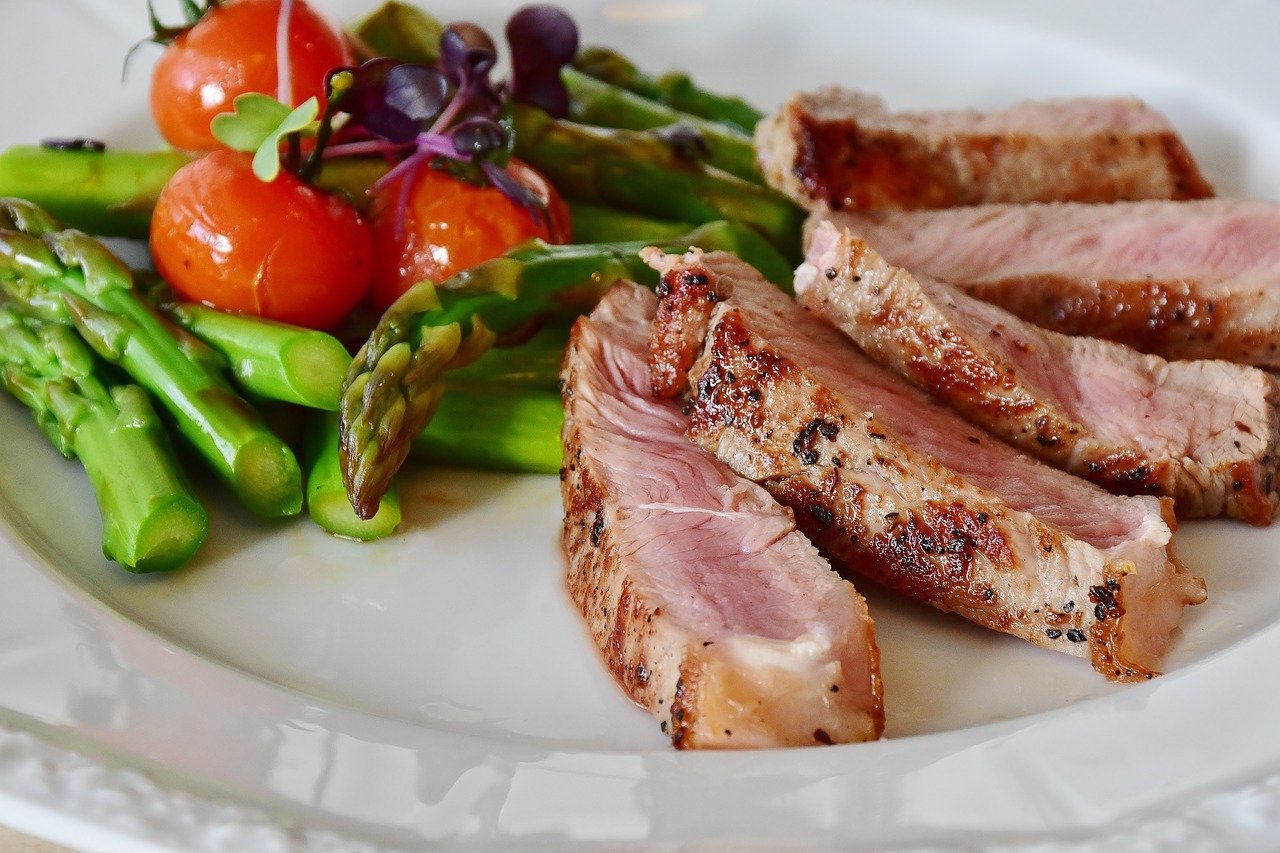I’ve been asking myself how much or how little protein is enough. There are several articles that suggest various amounts however this one from medical news today seems to encapsulate most of the key differences to take into consideration.
The first being the Recommended Dietary Allowances and Adequate Intakes, Total Water and Macronutrients table. According to this table the minimum daily recommended amount of protein people should be eating is 56g for men and 46g for women.
Beyond that however is also the following table from a 2016 study recommends eating:
- 0.8 g of protein per kg of body weight based on reference intake for macronutrients from 2005 (still being considered a standard by some)
- 1.0 g of protein per kg of body weight with minimal activity levels
- 1.3 g of protein per kg of body weight with moderate activity levels
- 1.6 g of protein per kg of body weight with intense activity levels
As a third recommendation being that eating more than 2 g per kg of body weight daily of protein for a long time can cause health problems.
So from this we can build a rough guideline of how much protein is being recommended. Using males, my current weight of 145 kg, and assuming no more than moderate activity level (1.2 x kg), as the example we get
| Protein | Beef (25%) |
Chicken (25%) |
Pork (30%) |
Salmon (25%) |
Cod (20%) |
Tuna (30%) |
|
| Minimum (RDA) |
56g | 225g | 0.5 lb | 225g | 0.5 lb | 185g | 0.4 lb | 225g | 0.5 lb | 280g | 0.6 lb | 185g | 0.4 lb |
| Alt. Minimum (0.8 x kg) |
116g | 465g | 1 lb | 465g | 1 lb | 387g | 0.9 lb | 465g | 1 lb | 580g | 1.3 lb | 387g | 0.9 lb |
| Moderate (1.2 x kg) |
174g | 696g | 1.5 lbs | 696g | 1.5 lbs | 580g | 1.3 lbs | 696g | 1.5 lbs | 870g | 1.9 lbs | 580g | 1.3 lbs |
| High (1.6 x kg) |
232g | 925g | 2.0 lb | 925g | 2.0 lb | 775g | 1.7 lb | 925g | 2.0 lb | 1160g | 2.6 lb | 775g | 1.7 lb |
| Not Recommended (2 x kg) |
290g | 1160g | 2.6 lb | 1160g | 2.6 lb | 965g | 2.1 lb | 1160g | 2.6 lb | 1450g | 3.2 lb | 965g | 2.1 lb |
(% protein content)
In the Nature study, the two control groups were put on a 21% and 7% protein naturally sourced diet. Apparently the study did not describe the actual composition of all proteins. Rather, I assume, used formulas which had similar isoleucine compositions. That being said there was no indication that I’ve found that seems to address the difference in the caloric vs activity recommendations that are provided by various agencies pertaining to humans.
Upshot is that I’m just taking a wild guess here whether the protein restriction is therefore based on comparison to the minimum guidance as per recommended dietary allowances or or the higher moderate values to base the dietary program on. I’m assuming the study was based on the later which would essentially establish the minimum RDA values as the key benchmark as it is approximately 1/3 (albeit for mice 😛 ) .
This would seem to make sense as the minimum RDA value is what is needed to avoid protein under nutrition results in stunting, anemia, physical weakness, edema, vascular dysfunction, and impaired immunity.
The way I’m going to therefore define protein days will be to use the the following as maximum values for each day
| Protein |
Beef |
Chicken (25%) |
Pork (30%) |
Salmon (25%) |
Cod (20%) |
Tuna (30%) |
|
| Low (0.4 x kg) |
58g | 232g | 0.5 lb | 232g | 0.5 lb | 193g | 0.4 lb | 232g | 0.5 lb | 290g | 0.6 lb | 193g | 0.4 lb |
| Medium (0.8 x kg) |
116g | 465g | 1 lb | 465g | 1 lb | 387g | 0.9 lb | 465g | 1 lb | 580g | 1.3 lb | 387g | 0.9 lb |
| High (1.2 x kg) |
174g | 696g | 1.5 lbs | 696g | 1.5 lbs | 580g | 1.3 lbs | 696g | 1.5 lbs | 870g | 1.9 lbs | 580g | 1.3 lbs |
To be fair I’ve typically eaten in around these ranges anyway. So really the big change is to go meatless two days per week which will significantly reduce the amount of isoleucine I’m consuming right there.
There are a few factors from the 2021 study that are not apparent from a number of the summaries
- Protein reduction needs to be a life-long activity, not just a couple of days a week
- Protein reduction mid-life does not seem to give the same life extension benefits as starting it early in life
- Protein reduction does seem to provide favorable health benefits from cancer and other diseases regardless of when it is started
- Protein reduction does not have the same impact for women as it does for men
So obviously there is a lot still to be learned and I suspect this is still early days. The research however is significant enough that it appears promising. Its a starting point and giving up ‘large’ quantities of meat two days a week isn’t really a huge sacrifice at this point. It is something easily incorporated into my lifestyle without causing stress and fear of change.
Now where did I put that butternut squash 🙂
— Kevin
